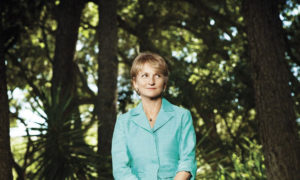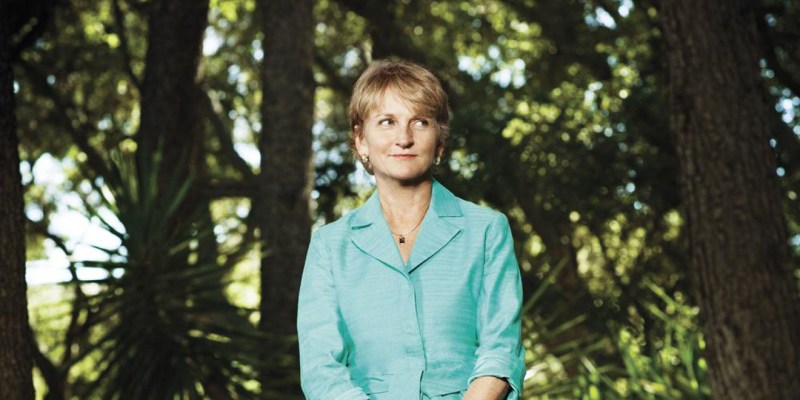Pamela Matson announced Tuesday that she will step down as dean of the School of Earth, Energy and Environmental Sciences (Stanford Earth) after a 15-year tenure. Provost Persis Drell will announce plans for a replacement search early in spring quarter.
“We have a strong community of faculty and students who make positive impacts every day, increasing the understanding of the planet we share and developing solutions for the most critical challenges we face as a society,” Matson told Stanford Earth. “I am enormously grateful for the partnership and guidance of the Stanford Earth faculty and colleagues across campus.”

As dean, Matson oversaw the growth of Stanford Earth in size and academic scope, as well as the expansion of research and teaching partnerships across campus. Her interdisciplinary vision led her to hire geomicrobiologists, soil scientists, agricultural and land-use researchers, resource economists, geographers and oceanographers to complement the school’s traditional expertise in geology, geophysics, geochemistry and energy engineering.
“Under Matson’s leadership, the scope of Stanford Earth’s research and teaching has expanded greatly and in ways that have never been more important for our students and for society,” Drell said.
Today, Stanford Earth faculty and students from a broad range of fields tackle the varied scientific and policy challenges that the Earth faces, such as energy sustainability, food and water resources, climate solutions and natural disaster risks.
“Pam has been an agent of change for the school,” said Welton Joseph and Maud L’Anphere Crook Professor Stephan Graham M.S. ’74 Ph.D. ’76, who has worked under six deans at Stanford. “The outside world can now look at Stanford and recognize a school committed to studying Earth change over all time scales, including those happening today.”
Matson’s emphasis on cooperation across disciplines extended beyond Stanford Earth. She played an instrumental role in Stanford’s Initiative on the Environment and Sustainability in the early 2000s and helped to plan the Yang and Akiko Yamazaki Environment and Energy Building (Y2E2), which set new standards for energy conservation and performance on campus while uniting researchers from fields as varied as biology, law and anthropology under one roof in pursuit of sustainability research.
Minority representation within the field was also a special concern of Matson’s. Under her leadership, the school created an Office of Multicultural Affairs to catalyze and sustain diversity efforts across the school. Over Matson’s 15-year tenure, the percentage of female faculty grew from around 10 percent to 29 percent, and underrepresented minorities rose from two percent to five percent.
Students may remember Matson as a former director of the Earth Systems program for undergraduates and for her role in the launch of the O’Donohue Family Stanford Educational Farm, which over 450 students have visited for a class module or a field trip since last fall. Matson, who is a member of the U.S. Academy of Sciences and a former MacArthur fellow, plans to continue her teaching and research at Stanford Earth after stepping down as dean.
“I look forward to spending more time advising and teaching both undergraduate and graduate students, leading executive training and returning to research,” she said.
Contact Fangzhou Liu at fzliu96 ‘at’ stanford.edu.
